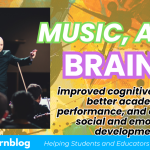Mathematics is often considered one of the most difficult subjects to study, from elementary to college. Subjects like calculus can sound intimidating at first, but did you know there are steps that can help you learn and simplify the process? Experts suggest that if you’re not good at math at first, it doesn’t mean you will never be good at it. Your ability to learn math depends on your willingness to try and understand it. It’s important to remember that mathematics is a vast subject, full of formulas and different methods for solving equations and problems.
Table of Contents
The world struggles with Math
According to experts, around 70% of people globally struggle with math, based on data collected from Asia, America, and Africa. This is a significant increase compared to the 50% recorded in the year 2000. Why is this the case? The answer often lies in the quality of teaching. Sometimes, the problem isn’t the quality of teaching but rather the focus of the students themselves. Having faster, more efficient methods to solve equations can help students stay focused and prevent confusion during their studies.
Learning mathematics may not be easy, but having a good teacher or being able to understand the subject more quickly can make it easier. Math can be enjoyable, especially when you understand it, and it’s even more enjoyable when it’s taught in a creative and engaging way. In countries like Finland, which has one of the highest-quality education systems, students are given four hours of math instruction, focusing on essential areas like trigonometry, geometry, and algebra, while cutting down on unnecessary topics. This method ensures students can learn the core concepts that are important for their daily lives.

Benefits of math in everyday life
Mathematics is crucial in our everyday lives, even if we don’t always notice it. From counting the change we receive at stores to calculating how much time we have until an event, math plays an important role in practical, day-to-day activities. Even basic arithmetic that we learn in school is directly applied in our routine tasks, and understanding these concepts prepares us for future challenges that may require more advanced mathematical skills, often without us even realizing it.
Mathematics is often viewed as a daunting subject, but its relevance extends far beyond the classroom. One key to understanding math is recognizing that it is not merely about memorizing formulas, but about developing problem-solving skills. Whether you’re dealing with simple calculations or complex equations, the core of math is logical thinking and pattern recognition. These skills are not only applicable in academic settings but also in everyday decision-making and problem-solving. By learning math, students build a foundation for critical thinking that can benefit them in various aspects of life, from managing personal finances to evaluating risk and making informed choices.
In addition, the way mathematics is taught plays a significant role in shaping students’ attitudes towards it. Research has shown that when students are taught in an interactive, student-centered environment, they are more likely to engage with the subject and overcome their initial apprehension. In classrooms where teachers foster a positive and encouraging atmosphere, students are more likely to feel confident and motivated to tackle challenging problems. In contrast, when math is taught in a rigid, one-size-fits-all approach, students often feel overwhelmed and disconnected from the subject. Teachers who incorporate creativity, real-life applications, and hands-on activities make math more accessible and interesting.

Math in the digital age
The role of mathematics in the digital age is also worth considering. As technology advances, the importance of mathematical literacy becomes even more apparent. From data science and artificial intelligence to engineering and computer programming, math is the foundation of much of the innovation shaping the modern world. Understanding mathematical concepts like algorithms, statistics, and geometry is essential for anyone looking to pursue a career in technology, finance, or research. As we continue to live in an increasingly data-driven world, being proficient in math will give individuals an edge in many fields, making it a vital skill for the future workforce.
Conclusion
In conclusion, while mathematics may seem intimidating, its value extends far beyond the classroom. With the right approach, anyone can learn to appreciate and even enjoy the subject. By recognizing its real-world applications, fostering engaging teaching methods, and understanding the skills it develops, students can overcome their fear of math and gain the confidence they need to succeed in this essential field. Whether for personal growth or future career opportunities, investing time and effort in learning math is an investment in one’s future success.











